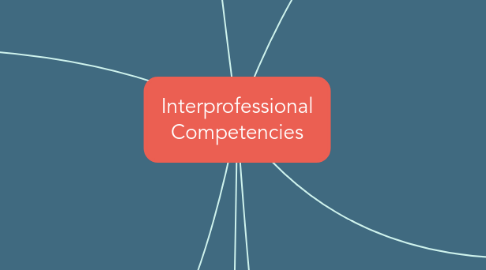
1. Rewards
1.1. Pharmacist
1.1.1. - For community pharmacists, being apart of a community who can develop a relationship with patients - Patients asking for OTC counselling or advice provides a unique satisfaction of being considered a 'medication expert'
1.2. Shared
1.2.1. - Direct patient care - Helps pts improve their overall health and wellness - Collaborative roles in the patient's circle of care - Builds meaningful connection with patient and their family
1.3. Social Worker
1.3.1. - Building a long term bond and trust with the patient - Watching the changes and development in the families and individuals they work with - Better equipped to manage stressful situations in their daily lives
2. Standardized board
2.1. Pharmacist
2.1.1. - For Ontario, it is the Ontario College of Pharmacists (OCP)
2.2. Shared
2.2.1. Pharmacist
2.2.1.1. - Translates medical jargon into patient friendly language for patients to understand their disease and drugs which allows patients to make informed decisions about their health - Understand medications and provide evidence-based information to other healthcare professionals and the patient
2.2.2. - Regulatory board differs from province to province
2.3. Social Worker
2.3.1. - In Ontario, it is the Ontario College of Social Workers and Social Service Workers (OCWSSW)
3. Challenges
3.1. Pharmacist
3.1.1. - The opioid crisis as many pharmacists have the vital role of monitoring for potential patients to develop addictions - Often forgotten in a youth's transition plan team. Managing the patient's medications is important but pharmacists are often left out of the patient's social and emotional health planning
3.2. Shared
3.2.1. - Under appreciated by society - All patients are different and each healthcare plan needs to be tailored to support their needs - General public don't fully understand each profession's role or scope of practice
3.3. Social Worker
3.3.1. - Feeling of inadequately providing for their patients since their scope is very broad and not overlapped by another profession which puts lots of pressure on social workers to fill in this large, unmet gap in the patient's healthcare - Under compensated for the amount of work they do
4. First encounter
4.1. Pharmacist
4.1.1. Most first encounters have been in community practice and individuals were at a young age
4.2. Social Worker
4.2.1. Most first encounters have been while 'on the job' in hospitals or working with patients
5. Misconceptions
5.1. Pharmacist
5.1.1. - Lack of understanding where to draw the line in a pharmacist's scope of practice - Pharmacists work under a deficit-based model (where there is something wrong with you, and you take this pill to 'fix' it) and are not aware of the whole picture and only see the patient as a diagnosis - Pharmacists distribute medicine to clients and the only interaction is when a patient has to fill a prescription
5.2. Shared
5.2.1. - Works behind the scenes to only provide support for other professions
5.3. Social Worker
5.3.1. - Social workers are only young, females - 'Jack of all trades and master of none' stemming from individuals with social work degrees present themselves under many titles - There aren't specialities in social work (i.e. social work is just social work!)
6. Important Roles
6.1. Shared
6.1.1. - Assists in pts healthcare to improve their overall health and wellness (in all aspects of health: mental, physical, et cetera.) - Main goal is to help people
6.2. Social Worker
6.2.1. - Providing patients the support in their daily lifestyle so they can meet their goals holistically - Provide deeper and meaningful insights on how a patient is feeling or the 'big picture' - Provide direction to other healthcare providers or patient/family members during sensitive topics such as initiating palliative care or addressing substance abuse issues
7. Personal Qualities
7.1. Pharmacist
7.1.1. - Knowledgeable in medication efficacy and safety - Provides low cost alternatives and recommendations for therapeutic changes - Teaches other healthcare professionals on medications - Thoroughly monitor the patients medication use to identify signs of non-compliance, side effects or adverse drug reactions, misuse, abuse or diversion - Accuracy and attention to detail
7.2. Shared
7.2.1. - Strong communication skills - Provides care and services beyond a desk or counter - Caring and empathetic
7.3. Social Worker
7.3.1. - Exceptional listening skills in order to piece together the big picture to help maintain a patient's 'social well being' - Patience as the patient develops their own autonomy and independence at their own pace - Compassionate in order to build a trust between themselves and the patient/family Self reflection in order to be mindful of their own self bias and how that might affect their work

